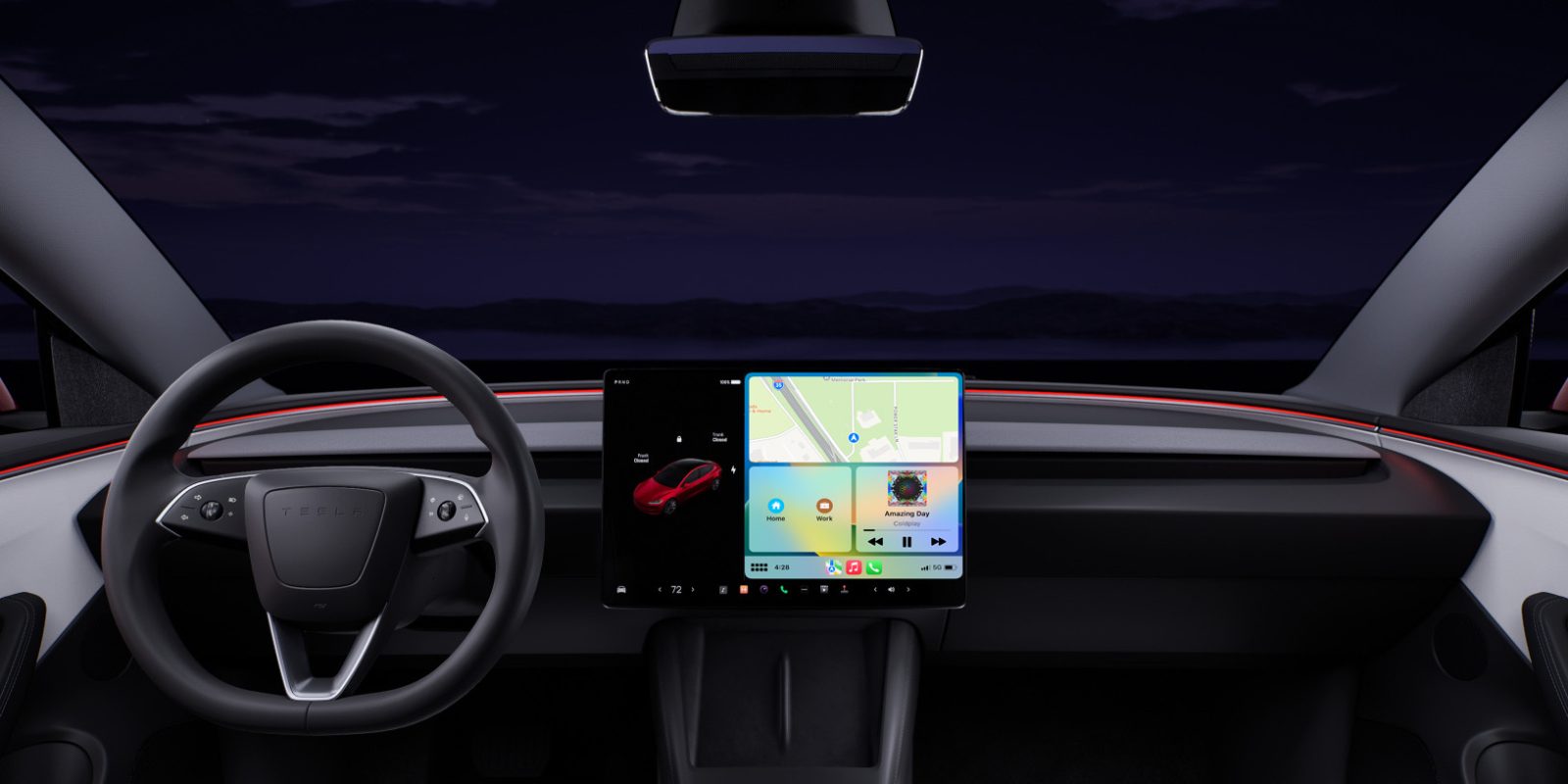Article Title: Tesla’s Potential CarPlay Integration: A Game-Changer for EV Enthusiasts
Tesla, a pioneer in the electric vehicle (EV) industry, has long been recognized for its proprietary in-car software systems. Historically, the company has opted to develop its own infotainment platforms, steering clear of third-party integrations like Apple’s CarPlay. However, recent reports suggest a significant shift in this approach, with Tesla considering the introduction of CarPlay support in its vehicles.
Tesla’s Historical Stance on CarPlay
Since its inception, Tesla has prioritized a unique user experience, crafting an in-house infotainment system that seamlessly integrates with its vehicles’ hardware and software. This strategy has set Tesla apart from many automakers who have embraced CarPlay to offer users a familiar interface. The absence of CarPlay in Tesla vehicles has been a point of contention for some consumers, especially those deeply embedded in the Apple ecosystem.
Emerging Reports Indicate a Change
According to a recent Bloomberg report, Tesla is internally testing CarPlay support. The discussions within the company hint at a potential rollout in the coming months, though no definitive plans have been finalized. If implemented, Tesla’s version of CarPlay would coexist with its native interface, presenting CarPlay within a dedicated window rather than allowing it to dominate the entire screen. This design ensures that Tesla retains control over essential vehicle functions while offering users the benefits of CarPlay.
Potential Features and Limitations
The proposed integration would support wireless CarPlay, enhancing user convenience by eliminating the need for physical connections. However, certain Tesla-specific features, such as the Full Self-Driving (FSD) mode, would remain exclusive to Tesla’s native system. Users would need to rely on Tesla’s proprietary navigation for functionalities tied to FSD, ensuring that critical driving features are managed within Tesla’s established ecosystem.
Industry Implications
Tesla’s potential adoption of CarPlay marks a notable departure from its previous strategy and could influence other automakers’ decisions regarding third-party integrations. For instance, Rivian, another EV manufacturer, has also refrained from incorporating CarPlay, focusing instead on its custom infotainment system. Similarly, General Motors (GM) announced plans to phase out CarPlay in its future electric vehicles, opting to collaborate with Google for in-car software development. Tesla’s move might prompt these companies to reevaluate their positions, especially if consumer demand for CarPlay integration becomes more pronounced.
Consumer Perspective
For many consumers, CarPlay offers a seamless connection between their iPhones and vehicle infotainment systems, providing access to apps, navigation, and media in a familiar interface. Tesla’s potential integration of CarPlay could address a longstanding request from its user base, enhancing the overall driving experience and potentially attracting a broader audience.
Conclusion
While Tesla has not officially confirmed the integration of CarPlay, the reported internal testing signifies a potential shift in the company’s approach to in-car software. If implemented, this move could set a precedent in the EV industry, balancing proprietary innovation with consumer preferences for third-party integrations. As the automotive landscape continues to evolve, Tesla’s decisions in this realm will undoubtedly be closely watched by both industry peers and consumers alike.



